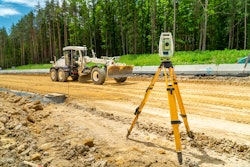
In an era where rapid technological advancement defines success across industries, the land development sector is experiencing a transformative shift. Historically perceived as slow adopters of technology, directors of land development are now spearheading an innovation-driven approach. This pivot towards tech-forward leadership signifies a profound change in how land development projects are managed, executed, and delivered. Integrating specialized software and digital tools is not just enhancing operational efficiency; it's redefining the ethos of land development work.
According to the latest New Home Lot Supply Index (LSI) provided by Zonda for the fourth quarter of 2023, the landscape of lot availability is changing, underscoring the importance of adopting innovative approaches. The report shows a year-over-year loosening in lot supply across the United States yet highlights a tightening quarter-over-quarter, with a 25.1% increase from the previous year, signaling a significantly undersupplied market nationally.
Meanwhile, the LSI found that 75% of builders are planning to start more homes in 2024 compared to 2023, signaling that the pressure on lot availability and pricing is intensifying. This affects housing affordability and demands a strategic response from land development professionals. This nuanced supply dynamic, influenced by builders responding to increasing market demand, places a spotlight on the critical need for directors of land development to leverage technology in navigating these challenges.
The homebuilding industry, with its unique challenges ranging from intricate land acquisition and entitlement processes to the complication of management of site balance and environmental considerations, has often found itself at odds with the pace of technological innovation. However, the tide is turning. The advent of purpose-built site intelligence platforms enables leaders to tackle these challenges head-on, offering solutions that streamline processes, enhance transparency, and facilitate data-driven decision-making.
A New Paradigm of Accountability
Accountability has always been the cornerstone of successful project management, especially in land development, where the scope and complexity of projects demand meticulous oversight. In the past, ensuring accountability across teams and projects meant relying heavily on manual tracking and reporting, a time-consuming and error-prone approach. Today, technology offers a new paradigm. Real-time data and analytics give directors an unprecedented overview of project progress, allowing them to identify issues early, allocate resources more effectively, and maintain a continuous feedback loop with their teams. This boosts project efficiency and fosters a culture of accountability and transparency that trickles down through every level of the organization.
Moreover, the capacity to maintain a digital record of time-stamped progress photos and data becomes invaluable in demonstrating compliance, managing billing, and verifying work completion. This level of documentation is crucial in an industry where proving due diligence and maintaining a transparent relationship with stakeholders can make or break a project's success.
Empowering Teams for Success
Empowerment in the context of land development leadership has evolved significantly with technology adoption. Gone are the days when reliance on external consultants for critical data or analysis could slow decision-making or inflate project costs. Today's technology platforms provide project teams with immediate access to a wealth of information and tools that empower them to make informed decisions swiftly. This empowerment is evident in the enhanced capability of teams to tackle challenges, optimize workflows, and achieve project goals with a level of precision and confidence previously unattainable.
This shift not only maximizes the individual and collective potential of team members but also contributes significantly to the overall success and profitability of projects. By equipping their teams with technology that facilitates intelligent, data-driven decisions, directors are laying the groundwork for a more dynamic, agile, and thriving project management environment.
Efficiency as the Competitive Edge
Efficiency in land development is multifaceted, encompassing everything from resource allocation and project management to stakeholder communication and risk mitigation. The cumulative impact of inefficiencies can be staggering, leading to delays, cost overruns, and diminished profit margins. Technology is a powerful lever in this context, enabling directors and their teams to streamline operations, reduce redundancies, and enhance productivity.
The ability to remotely monitor project progress, access detailed measurements, and collaborate in real-time reduces the need for physical site visits and meetings and accelerates decision-making. Furthermore, site intelligence platforms contribute to significant cost savings and operational efficiencies by minimizing the dependency on external consultants for basic project data and analysis.
Cultivating a Culture of Innovation
The transition towards a more technology-driven land development approach extends beyond merely adopting new tools. It signifies a more profound cultural shift towards innovation and continuous improvement. For directors, this means fostering an environment where experimentation is encouraged and technology is leveraged not just for modernization but as a strategic enabler of business objectives.
Embracing this culture of innovation is essential for staying competitive in an increasingly dynamic and challenging industry landscape. Directors who champion tech-forward leadership are enhancing their project outcomes and setting new standards for excellence in land development. This forward-thinking approach is critical for attracting talent, satisfying stakeholders, and securing a sustainable competitive advantage.
Embracing the Future of Land Development
As the land development industry continues to evolve, the role of technology will undoubtedly become more integral. The directors who recognize and embrace this shift today will lead the charge tomorrow. By leveraging technology to enhance accountability, empower teams, optimize efficiency, and foster a culture of innovation, these leaders are not only overcoming the traditional challenges of land development but are also paving the way for a new era of success.
The emergence of tech-forward leadership in land development is pivotal in the industry's evolution. It represents a departure from traditional practices and a leap towards a future where technology-driven solutions are fundamental to achieving operational excellence and project success. For directors willing to embrace this new era, the opportunities are boundless. The journey toward tech-forward leadership is not without its challenges, but the rewards —enhanced project outcomes, competitive advantage, and industry leadership — are well worth the effort.


















